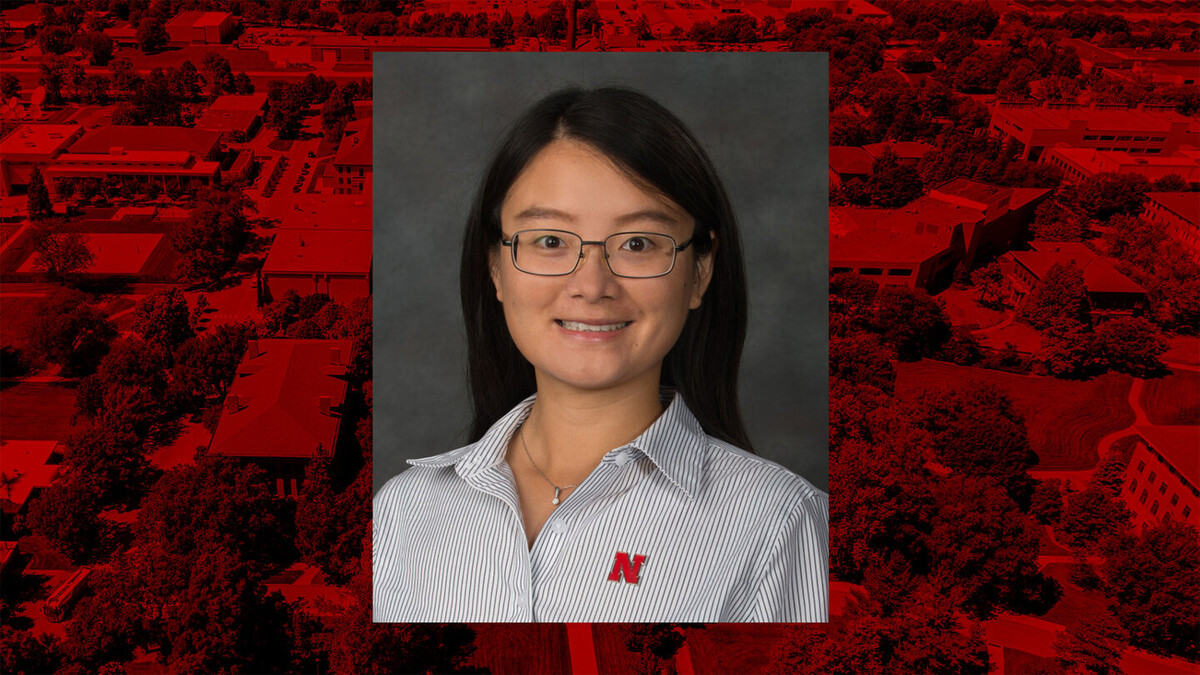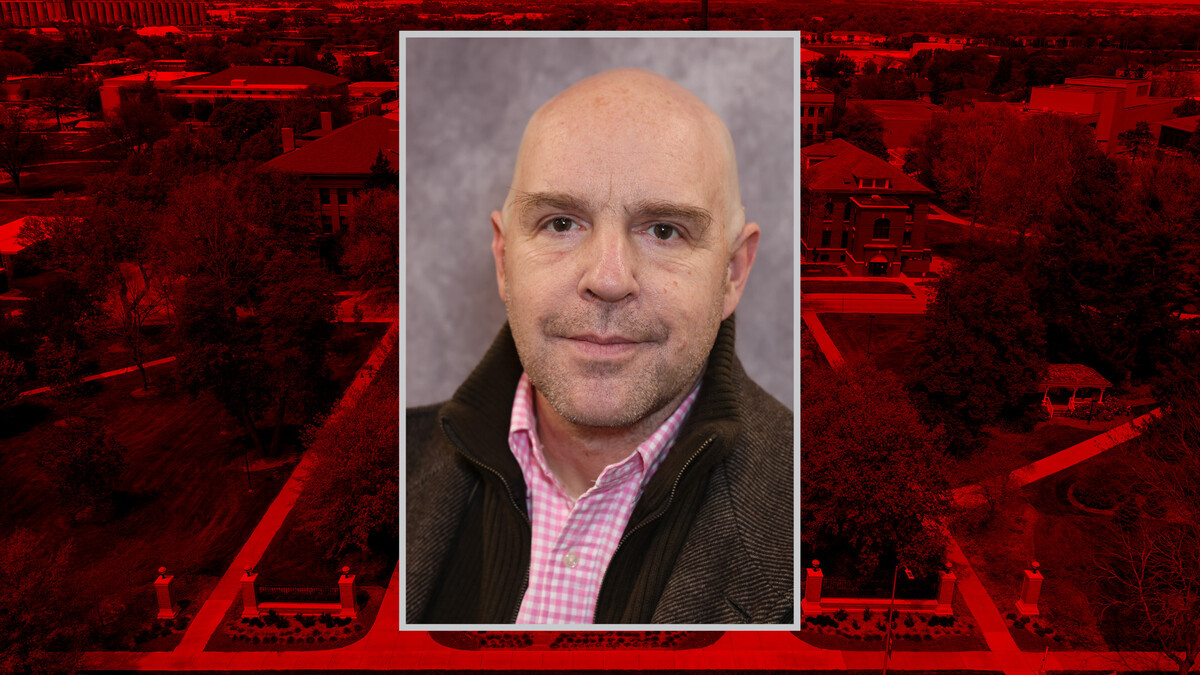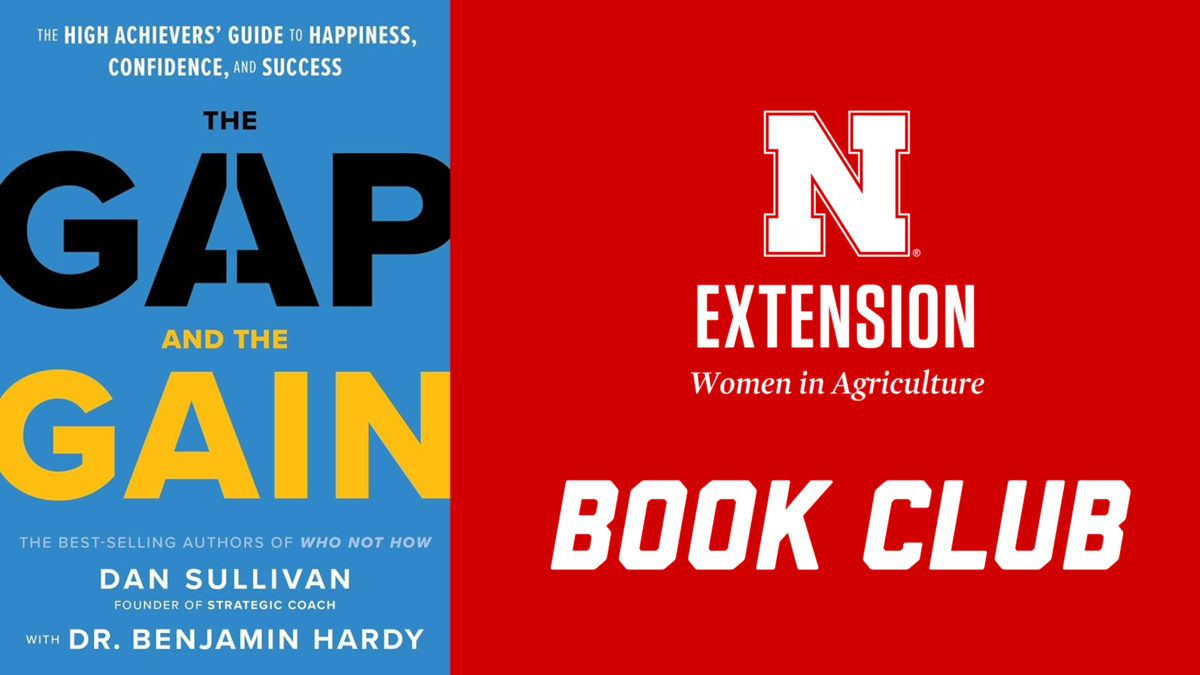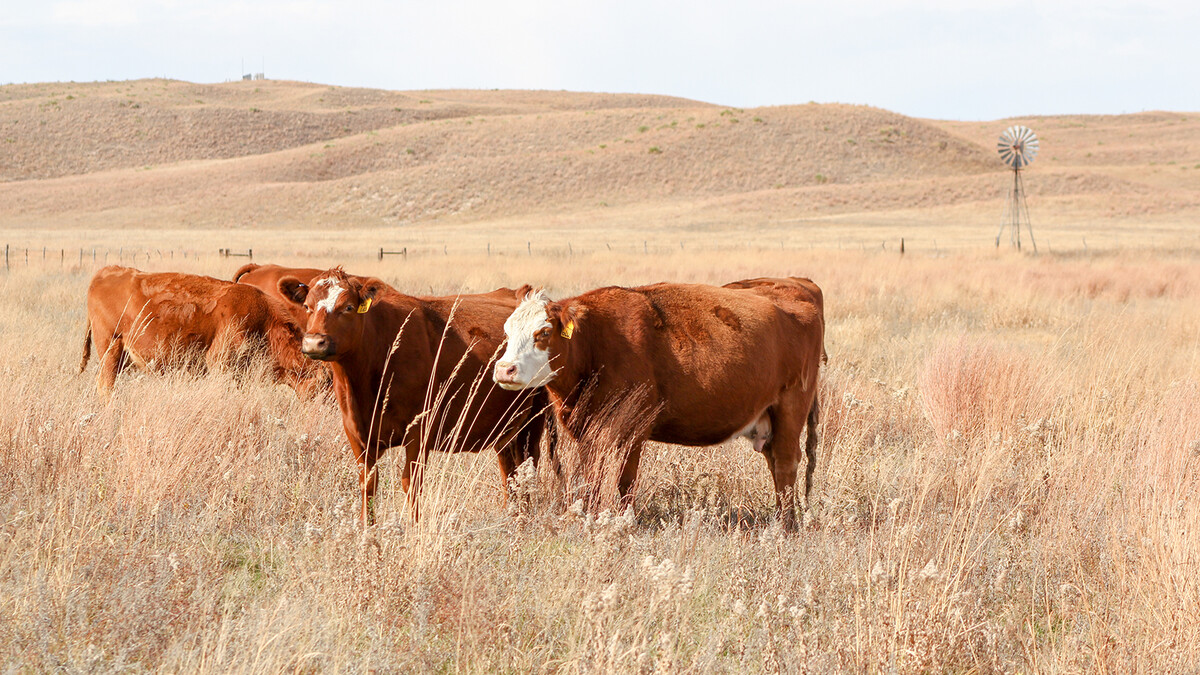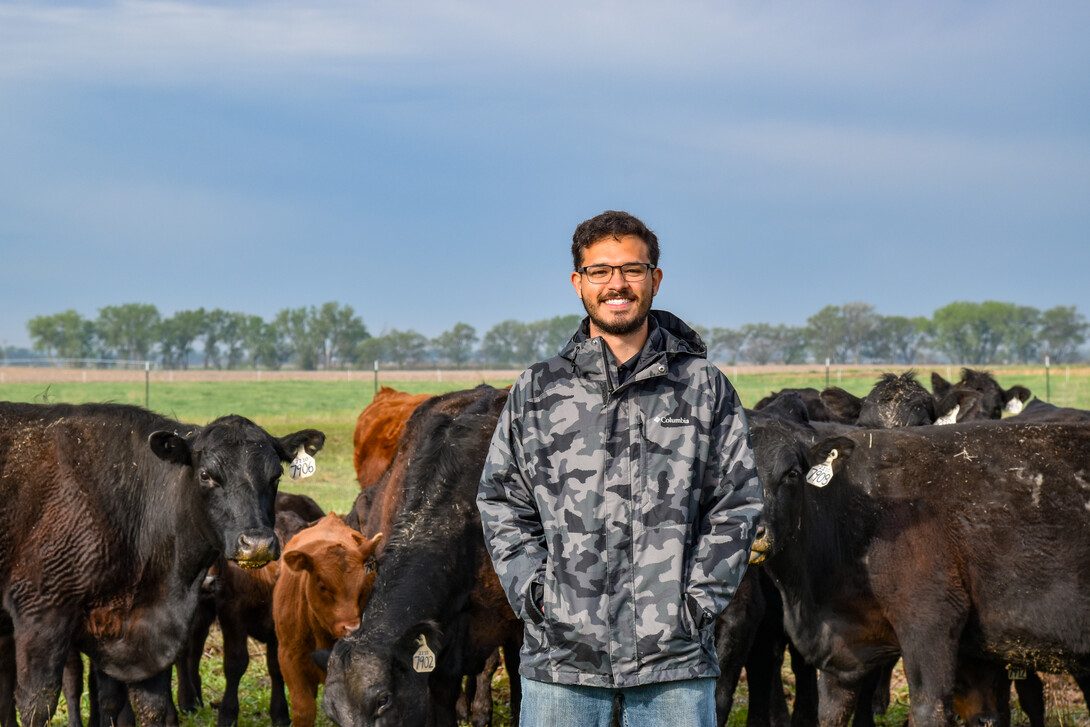
Pedro Jota Fernandes, a master’s student at the University of Nebraska- Lincoln, is emerging as a prominent scholar and researcher in Beef Systems. Originally from Brazil, he is bringing a medley of skills, determination and grit to the beef scene.
After completing his bachelor’s degree in Brazil, he began to seek the next steps for his education and career in the U.S. A neighbor, who had studied under Galen Erickson, the university’s Nebraska Cattle Industry Professor of Animal Science, praised the instructor and the institution and introduced Fernandes to UNL. While researching the program and possible internship opportunities, he connected with Mary Drewnoski, a Beef Systems specialist.
“She is the reason I am here,” Fernandes noted.
Drewnoski’s enthusiasm, patience and depth of insight drew Fernandes to the Beef Systems program. Paired with Drewnoski’s character, he could foresee the prospect for a long-term position and home.
Passions and Projects
When he first came to Nebraska, Fernandes worked with Drewnoski, aiding her in research coordination as a technician intern. As he sought new avenues to keep him in the Beef State, he found the Beef Systems Master’s program, which he eagerly pursued.
Growing up on his family’s farm in Brazil, where they raised corn and soybeans alongside dairy and beef cattle, instilled a passion for agriculture within his heart and mind. Fernandes notes that the bridge between the information produced in university and the information passed along to producers remains a major disconnect. Intent to promote communication, Fernandes has dedicated his studies to research and information production.
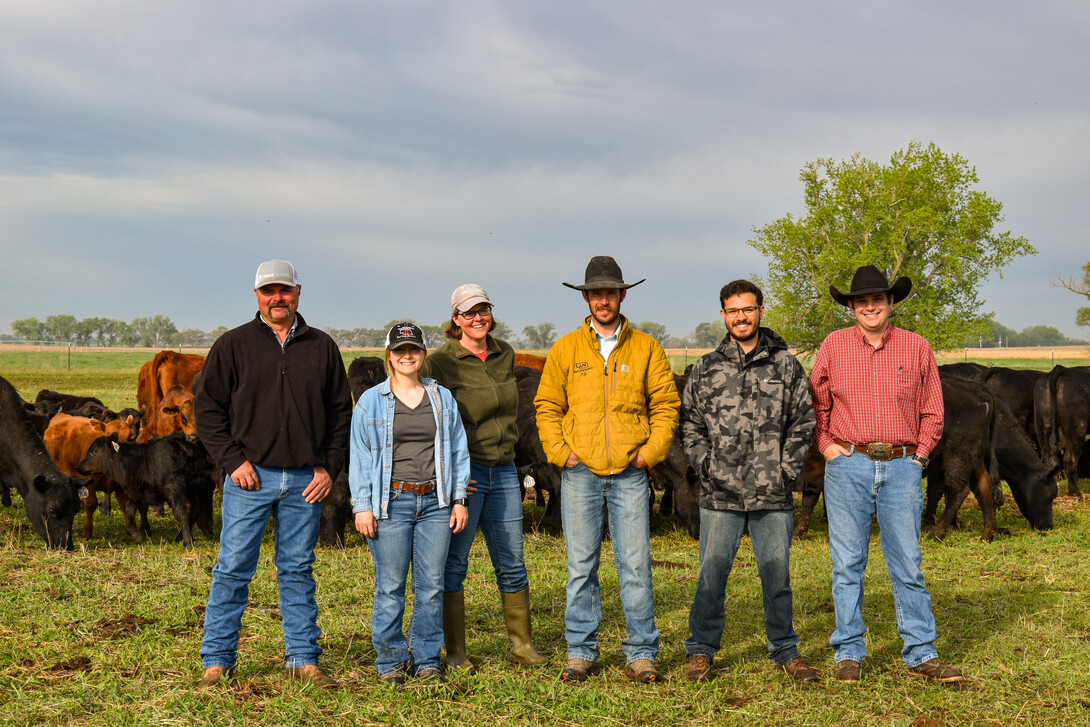
In 2023, after moving to Nebraska, he dove into his first project with Drewnoski and Yijie Xiong. Using satellite imagery, the team was able to analyze and estimate forage mass through the use of complex technology, mathematical models and biomass sampling.
Fernandes explains that he has sustained a multitude of benefits from being in the middle of these two experts, forging him into an highly skilled researcher. Drewnoski brings extensive knowledge concerning forage and livestock systems to the table alongside Xiong’s expertise in technology.
“We try to merge the best of the two worlds,” he said.
He continued to work with this team to pursue several other projects. Thanks to one investigation, producers have the ability to estimate forage biomass based on the canopy cover using smartphone imaging.
The team’s latest initiative has focused on a variety of grazing management protocols in relation to carbon sequestration and any correlations to methane production.
Ultimate Objective
In the end, Fernandes is striving to become a reliable source of information. Hoping to enable those in the industry and benefit their lives and operations, he is dedicated to research and innovation.
“My main goal is to help producers.”
Fernandes intends to begin his doctoral degree in January 2026 as he continues to find new solutions in the beef world. He will focus on the relationship between greenhouse gasses, methane emission and cattle, striving to make his name synonymous with progression and innovation. He explains that the cattle industry has been villainized in Brazil and other regions, and he is devoted to pursuing and sharing factual evidence and effective solutions.




